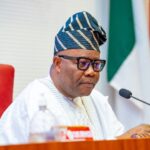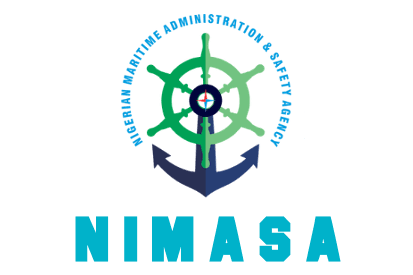-
As DG NIMASA Assures On Act Amendment Application
Maritime stakeholders in Nigeria have made a strong case for the rejig and possible total overhaul of the application of the 20-year old Cabotage Vessel Financing Fund CVFF in order to optimise the use of fund for the overall benefit of not only the maritime industry but also the country’s economy as a whole.
Meanwhile, the Director General of the Nigerian Maritime Administration and Safety Agency NIMASA, the custodian of the fund, Dr. Bashir Jamoh has said that the process of amending the Coastal and Inland Shipping Act Cabotage Act 2003, which created the fund was on and had passed the first layer and could therefore accommodate the views of the stakeholders going forward.
The stakeholders spoke in Lagos, Thursday at a one-day Colloquium organised by the maritime media in honour of late chairman of Nigerian Ports Consultative Council NPCC, Otunba Kunle Folarin, who died November 9, 2022 at the age of 81.
The event, which turned out to be a gathering of the la crème of Nigeria’s maritime industry both in the public and private sectors, featured a lead paper presentation entitled: “Ensuring Effective Disbursement of Cabotage Vessel Financing Fund CVFF”; presented Jean Chiazor Anishere SAN. It also had the DG of NIMASA, Jamoh and Dr. Chris Asoluka, among several others as panellists
Speaking at the event, chairman of the occasion Captain Emmanuel Iheanacho, noted that Cabotage shipping activities constituted only less than five per cent of the entire shipping activities in the country while international shipping constitutes more than 95per cent, warning that concentrating the CVFF only on inland and coastal trade might just be like shooting oneself on the foot.
He pointed out that Nigeria has hundreds of thousands of cadets trained both locally and abroad, who cannot secure jobs on international vessels because they have not been able to do the one-year mandatory sea time training on ocean going vessels that leads to the award the certificate of Safety and Watch Keeping STCW as prescribed by the International Maritime Organisation IMO.
“The problem I see here is the narrow definition of the Cabotage Vessel Fund, which does not cover liner shipping, where you have to run fleets. It will be uneconomical to spend N300million for instance, to acquire a vessel that is restricted to trading only within the inland and coastal region. But if such money is used to acquire ocean going vessel, she will trade globally, train cadets and also trade within the coastal waters anytime she is required to do so.
“I will therefore suggest we change the scope and name of the CVFF to Ship Building and Ship Acquisition Fund SASBF so that it will give a wider mileage for the use and application of the fund for the overall benefits of the maritime industry in particular and the Nigeria’s economy in general”, Captain Iheanacho, who is also Chairman/CEO, Genesis Worldwide Shipping, the country’s foremost indigenous shipping firm said.
Pioneer chairman of Nigerian Shipowners’ Association NISA, Chief Isaac Jolapamo, who also spoke at the event, decried the poor management of the entire gamut of the Cabotage regime, which he noted had been deployed in developing indigenous shipping in other countries of the world including the United States, Canada and Brazil, among others.
He regretted that Nigeria is still talking about disbursing the CVFF years after the fund was created, noting that the insertion of the waiver clause in the Cabotage Act as well as the reluctance on the part of the government and its agencies remained the greatest albatross to the growth and development of the Cabotage regime in the country.
The NIMASA DG, who made certain clarifications of the fund, especially in the light of recent approval of President Buhari for the disbursement of the fund, said that there was a presidential directive to all government agencies to transfer all related government funds into the Single Treasury Account TSA, which the agency complied with, which therefore necessitated the approval of the president.
He also disclosed that the process of amendment of the Cabotage Act 2003 is on, having passed through the first layer being the House of Representatives and would require the second layer, which would be the concurrence of the Senate. He assured that in between the second layer, there would be a public hearing where stakeholders would make their inputs.
The lead paper presenter, Anishere in her presentation identified some of the limitations facing the fund to include the lack of transparency in its operations and management, as some stakeholders have raised concerns about the allocation of funds and the use of loan proceeds and the inaccessibility of the fund. This, according to her, made some industry stakeholders complain about the difficulty in accessing the fund, citing issues such as lengthy application processes, high collateral requirements, and insufficient loan amounts to fully finance vessel acquisitions.
Others include the limited nature of the funds, which are not always able to meet the high demand for funding from shipowners, as the fund is not always sufficient to meet all loan applications, the bureaucratic process and the lengthy loan disbursement process and the requirements that take a long time to complete.
She also listed the limited impact of the fund despite the government’s efforts, as there hasn’t been any significant impact on the development of the Nigerian maritime industry and the Nigerian fleet as well as the lack of accountability in the management of the fund, especially in its use and current balance in the fund.
The Senior Advocate of Nigeria, however insists these challenges can be addressed with proper management, transparency and stakeholder engagement. She argued that a better defined and transparent loan disbursement process, and a system of accountability for the loan use and repayment, would go a long way in addressing some of these limitations.












